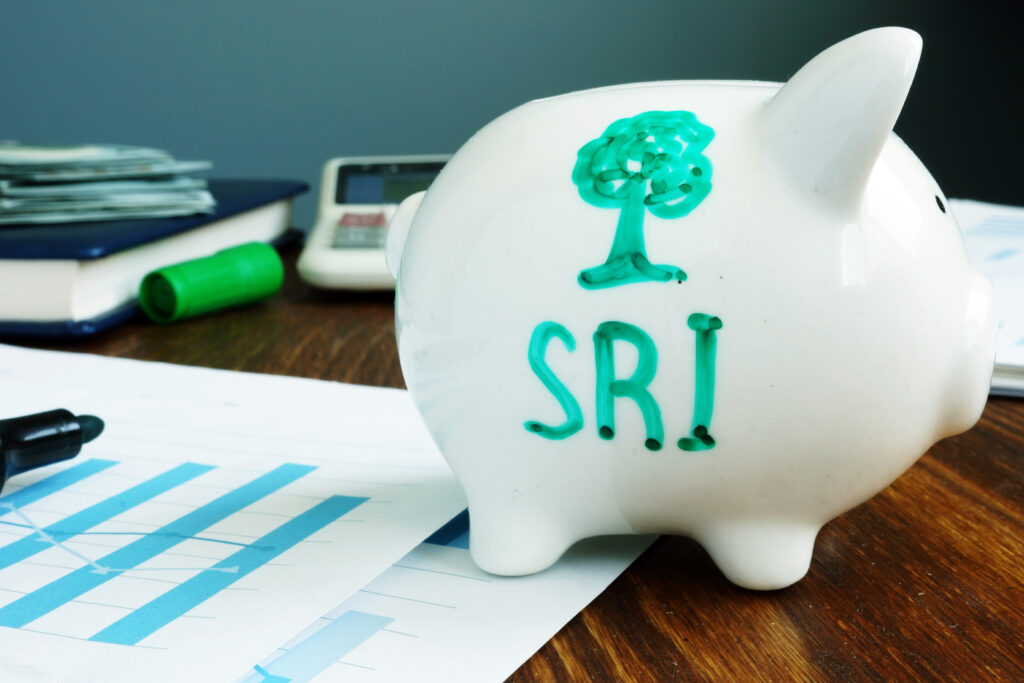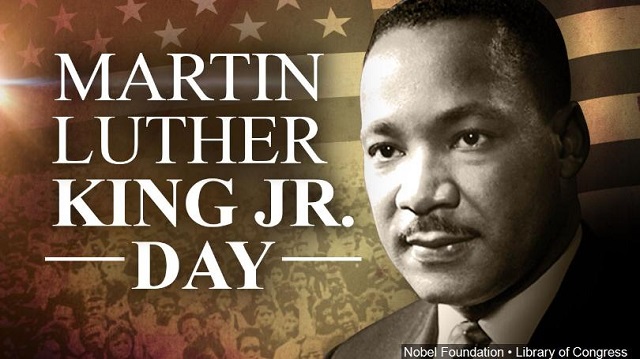Something of a conundrum is playing out in Florida when it comes to efforts by members of the public to “vote with their feet” in influencing corporate conduct. One the one hand, there are those working to frustrate use of “environmental, social, and governance” (“ESG”) considerations in investment decisions, even by private parties. On the other, a well-known, publicly-traded company faced backlash from seemingly the same people opposing ESG because of that company (Disney)’s stance on a controversial “social” issue.
Conceptually, it seems difficult to distinguish ESG and defund Disney (each discussed below) are their core. Both involve a desire not to funnel funding to corporations whose practices are perceived as harmful (or, to some extent under ESG, to instead support those perceived as having more positive impacts). What puts them in different camps seems to be not so much the nature of the activity involved, but where someone has stamped a “woke” label.
This post is intended for Evangelicals, as an encouragement to consider whether opposing everything about ESG out of disagreement with some factors may undermine their long-term interests, including in inviting people to church. Already, there are those who perceive Evangelicals’ activity as centered around opposition in particular areas (especially LGBTQ issues) instead of support for applying ethical principles evenhandedly. How will it come across to express outrage over anticipated changes in Disney programming — due to a professed desire to protect children — but oppose ESG principles intended to address (or at least disclose) whether an entity has due diligence practices to protect against forced child labor in its supply chain? Does that not implicate the same interests? And what if one of the industries in which serious allegations have been made may include makers of our Christmas and Easter candy?
I say all of this (and the information outlined below) not to shame anyone involved with a particular industry or company, or with Florida or other government, but because I cannot reconcile the contrast. And do think there is food for thought below:
ESG banned from Florida pension fund:
Looking first at ESG: This summer, Florida’s governor announced that he, together with “fellow Trustees of the State Board of Administration (SBA)” passed a resolution obligating state pension funds to invest in a manner that ignores all “non-pecuniary” factors.[1] In some circumstances, one might take “non-pecuniary” to mean “not consisting of money.”[2] In other words, as inclusive of things like ethics, morals, integrity, and the values by which we try to live.
That would be wrong, at least according to this particular resolution and related media release. Both adopt the posture that there is nothing noble about the non-pecuniary. Rather, the resolution depicts considering such factors as inherently an effort to further someone’s “social, political, or ideological interests.”[3] In harsher terms, a media announcement dismisses them as “whimsical notions of a utopian tomorrow” with no place in investment decisions.[4]
The action is framed as one to “protect Floridians from the environmental, social, and corporate governance (ESG) movement.”[5] (For brief background on what ESG is, see this post: Be the Change? Is Socially Responsible Investing (SRI) or “ESG” for Believers? – Paradox and Bedrock). It begs the question, if Florida pension funds do not already embrace ESG, how do they need protection?
To be sure, there are federal proposed rules concerning ESG under consideration. None, though, would tell state pension funds what to do. Instead, any rule applied by the federal Department of Labor (“DOL”) would concern funds governed by federal “ERISA” laws — which have no application to state and local government pension plans.[6] As such “protection” would be from indirect influence, with the Board preventing itself from being persuaded to follow suit.[7]
Another, federal Securities and Exchange Commission (“SEC”), proposed rule is designed to aid informed decision-making amidst increasing demand from members of the public for ESG investment “services, products, data.”[8] It, too, imposes no dictates on state pension funds. If anything, it may well benefit those who see ESG as having a liberal lean.
Although partly intended to prevent asset managers from overselling their actual commitment to ESG, duping investors who care about those considerations, another core aim is to provide transparency so that people can understand to what extent a fund applies ESG.[9] The proposed rule notes that some funds apply, across the board, all of the ESG factors, while others embrace only a subset, which may mean considering as few as one of the issues “under the ESG umbrella.”[10] It aims to set standards for disclosures, thereby allowing investors to look “under the hood” of strategies offered them.[11]
The broad range of ESG factors exists in tandem with what would logically seem to be a wide the variation in the extent to which a given factor may generate controversy or be viewed with trepidation in certain circles. On the one hand, some of the ESG considerations, especially certain factors under the “social” umbrella, do include areas that can act as lightening rods for controversy. On the other end of the spectrum, however, are considerations such as assurance of avoidance of illegal conduct, eschewing conflicts of interest among board members, and operating an ethical supply chain that avoids child labor overseas or questionable workplace safety practices[12] that, intuitively, would seem appealing across both sides of the political aisle.
In between are various other ESG factors as well. These include areas that may be subject to heated debate, irrespective of the extent to which underlying evidence is fairly framed debatable. If you were a 90’s country fan (I was/am), this might bring to mind Diamond Rio (“We never walked on the moon; Elvis ain’t dead . . . .”). (For full disclosure on why I would put climate change in this bucket: Climate Change: Gather or Scatter in 2022? – Paradox and Bedrock.)
A flat ban allows none of this nuance. Instead, it rejects all such considerations, and all non-pecuniary factors, with equal scorn. This is an interesting development, given that socially responsible investment efforts have existed for decades and, perhaps ironically, may have started with state laws passed to “to screen out ‘sin’ stocks, such as tobacco, alcohol, and gambling.”[13]
The activity goes further than state pension funds. Notably, a proposed legislative change would make private parties’ consideration of ESG factors unlawful in Florida. A news release in that regard highlights a proposal to amend Florida’s Deceptive and Unfair Trade Practices statute to prohibit “large financial institutions” from using ESG metrics or benchmarks.[14] It appears that, if it passed, use of “ESG scores” would be declared unlawful and subject to civil liability and penalties under the statute.
Revoking Disney’s special status:
Does that mean that Florida financial or business issues will be decided with an entirely apolitical lens? Not exactly. Looking at Disney:
Last April, through a three-day process, initiated in a special session and criticized by some as “rushed,” Florida lawmakers took much-publicized action to strip Disney of its status as a “special district.”[15] Disney had held that status, granted by legislation in 1967 in anticipation of theme park construction, for more than 50 years.[16] Being a special district essentially allowed Disney to “self-govern an area of roughly 25,000-acres in Central Florida where Walt Disney World resort is located.[17] Disney took on the responsibility to provide services within the area, “function[ing] like a county government” and in return received relief from taxes and fees.[18]
The sudden move was widely seen as retaliation for Disney’s recent political speech. In March, the company had reversed (and apologizing for) its stance of silence on Florida’s controversial “Parental Rights in Education” bill and further stated that it would suspend political donations in the state.[19] In fairness, the legislation, in lieu of specifically naming Disney, applies to special districts formed before 1968, meaning it swept in a total of six of Florida’s more than 1,800 special districts.[20] There is also public commentary noting bipartisan sentiment in reevaluating the wisdom of special districts.[21] At the same time, however, the 1968 date, the timing of the legislation, and its apparent urgency, together would call any claim of coincidence into question. And, no one really seems to make such a claim. Indeed, one of Florida’s leaders described Disney as a “woke” corporation that, if it “want[ed] to pick a fight,” had chosen wrongly.[22]
The change will not go into effect until June 2023, allowing time to sort through the practicalities of the decision. Meanwhile, pecuniary considerations may abound and perhaps more for Florida than for Disney. (Some of the media coverage suggested may actually benefit financially.) Local governments expressed concern that they may need to raise taxes in the wake of the law change.[23] “Another potential issue is that the statute that created” Disney’s special district prohibits the state from eliminating that district “without paying off its bond debt, which is upwards of $1 billion.”[24]
When environmental, social, and governance factors become pecuniary factors
Another issue is the potential for “pecuniary” and “non-pecuniary” factors to overlap. The anti-ESG resolution described above frames pecuniary factors as ones expected to materially impact risk and return on the investment horizons.[25] It is possible ESG factors may have that effect. There is commentary to suggest, for example, that “ESG weeds out unsustainable companies with outdated practices and harmful side effects, while also minimizing risk for investors as they invest in more responsible companies with a greater likelihood of succeeding in the long run.”[26] As such, there are those who view the ESG factors as “material factors that can affect returns” and therefore a matter of “Value to investors” rather than “investor Values.”[27]
Biblically, consider also:
Like the partridge that hatches eggs which she has not laid, So is he who makes a fortune in ways that are unjust. It will be lost to him before his days are over. And in the end he will be [nothing but] a fool.
Jeremiah 17:11 [AMP]
The potential for short term gain at the expense of long-term risk and potential larger loss is easier to see in the context of safety and environmental standards, or corporate governance measures. (And delving into impact of ESG on returns is beyond the scope of this post, but I may do a separate one on that debate.)
As relevant here, “social” factors may also implicate investment returns because of public perception. Let’s look back at Disney. Florida lawmakers were not the only ones lashing out. An entire “defund Disney” movement formed among private parties following Disney’s comments on social issues (both its speech about the Florida law and professed plans to make changes to its programming). One article even explains the defund Disney effort as one to “hurt Disney in the pocketbook and bring them to their knees.”[28] It describes Disney as a “poster child” that is especially “easy to hate,” but ultimately only part of a larger effort to “cancel” 116 “woke companies that offend conservatives.”[29]
To be sure, not everyone protesting Disney’s recent plans or public statements embraces the “hate” and “offense” described as animating the movement on the webpage cited above. In the eyes of onlookers, however, it may be difficult to distinguish.
Taking it too far? / Can anti-ESG and “Defund Disney” be reconciled?
Much of the momentum around the Disney backlash seemed to involve people expressing a sentiment that a purportedly family-friendly company had crossed a line. As such, they were moved to action, such as protest in which they might not normally engage, to avoid harm to children.
As noted above, however, an aspect of the ESG — namely, a supply chain that avoids reliance of child labor overseas — serves the same values. Consider, for example, the lawsuits alleging, and media reports involving, the largest companies in the chocolate industry. See, e.g., McCoy v. Nestlé USA, Inc., 173 F. Supp. 3d 954, 956 (N.D. Cal. 2016), aff’d, 730 F. App’x 462 (9th Cir. 2018) (judicial opinion noting that: “The fact that major corporations source ingredients for their products from supply chains involving slavery and the worst forms of child labor raises significant ethical questions”). Weighing in with a brief in one of these suits, other entities in the industry complained that “[a]s slave-free cocoa and chocolate companies, [they] are at a competitive disadvantage” because their commitment to “compliance with international human rights norms” entails higher production costs, which they must pass on as higher prices.[30]
A relatively recent suit against multiple corporations is described as including, among other allegations, claims on behalf of a child with “visible cuts on his hands and arms from machete accidents,”[31] while a film released in 2000 reportedly quotes a “freed enslaved worker” as describing “something that he suffered to make, adding, ‘[w]hen people eat chocolate, they are eating my flesh.’”[32]
These are not the worst allegations. But I could not get them out of my mind. Why? Because if these are truly the largest U.S. producers of chocolate products, then it stands to reason they are also making, at least in part, our Easter candy.[33] If you are a Christian, what does that last quote call to mind?
Also in seeming contrast is that it seems to typically be conservatives who bemoan a “cancel culture.” Can anyone engaged in an effort to do away with Disney credibly complain if, down the road, he or she faces backlash for speech on the same issues? And if we outlaw private entities such as investment funds from considering ESG, what precedent does that set for prohibiting Christian values as non-pecuniary considerations in these same areas?
Are there important differences between ESG and Defund Disney?
Yes. First, ESG is proactive, while Defund Disney is reactive.
Second, the aims of ESG seem to be about personal integrity for investors, and/or, to the extent they seek to influence corporations, reform or sustainability/taking the long view. (Although critics claim that some industries or entities are “disfavored” that appears only to the extent their practices are inconsistent with the across-the-board standards applied to all. No one is mentioned by name. And, even participants in “disfavored” industries may have already tried to reinvent themselves for purposes of their own marketing long ESG became a popular acronym. BP’s effort some twenty years ago to re-brand itself as “beyond petroleum” comes to mind for me.[34]) “Defund Disney,” by contrast, appears, as the name implies, intended to destroy. If an entity is defunded, there would be nothing left to use to chart a new course.
[1] The State Board of Administration of Florida, A Resolution Directing an Update to the Investment Policy Statement and Proxy Voting Policies for the Florida Retirement System Defined Benefit Pension Plan, and Directing the Organization and Execution of Internal Review (August 23, 2022), ESG-Resolution-Final.pdf (flgov.com)
[2] Nonpecuniary Definition & Meaning – Merriam-Webster
[3] The State Board of Administration of Florida, A Resolution Directing an Update to the Investment Policy Statement and Proxy Voting Policies for the Florida Retirement System Defined Benefit Pension Plan, and Directing the Organization and Execution of Internal Review (August 23, 2022), ESG-Resolution-Final.pdf (flgov.com)
[4] Governor Ron De Santis Eliminates ESG Considerations from State Pension Investments (Aug. 22, 2022), Governor Ron DeSantis Eliminates ESG Considerations from State Pension Investments (flgov.com)
[5] News Release, Governor Ron DeSantis Announces Initiatives to Protect Floridians from ESG Financial Fraud (flgov.com) (July 27, 2022), Governor Ron DeSantis Announces Initiatives to Protect Floridians from ESG Financial Fraud (flgov.com)
[6] Jean-Pierre Aubry, Anqi Chen, Patrick M. Hubbard, and Alicia H. Munnell, ESG Investing and Public Pensions: An Update, Center for Retirement Research at Boston College, State and Local Pension Plans, No. 74 (Oct. 2020), ESG Investing and Public Pensions: An Update (bc.edu)
[7] Id.
[8] Proposing Release: Enhanced Disclosures by Certain Investment Advisers and Investment Companies about Environmental, Social, and Governance Investment Practices (sec.gov)
[9] Id.
[10] Id.
[11] SEC Press Release, SEC Proposes to Enhance Disclosures by Certain Investment Advisers and Investment Companies About ESG Investment Practices (May 25, 2022), SEC.gov | SEC Proposes to Enhance Disclosures by Certain Investment Advisers and Investment Companies About ESG Investment Practices
[12] See, e.g., Environmental, Social, and Governance (ESG) Principles and Criteria (investopedia.com)
[13] Jean-Pierre Aubry, Anqi Chen, Patrick M. Hubbard, and Alicia H. Munnell, ESG Investing and Public Pensions: An Update, Center for Retirement Research at Boston College, State and Local Pension Plans, No. 74 (Oct. 2020), ESG Investing and Public Pensions: An Update (bc.edu)
[14] News Release, Governor Ron DeSantis Announces Initiatives to Protect Floridians from ESG Financial Fraud (flgov.com) (July 27, 2022), Governor Ron DeSantis Announces Initiatives to Protect Floridians from ESG Financial Fraud (flgov.com)
[15] Maria Caspani & Dawn Chmielewski, Florida set to strip Disney of self-governing status in dispute over LGBTQ law, Reuters (Apr. 21, 2022), Florida set to strip Disney of self-governing status in dispute over LGBTQ law | Reuters; Tax Notes Staff, Examining Florida’s Removal of Disney’s Special Tax District, Forbes (June 1, 2022), Examining Florida’s Removal Of Disney’s Special Tax District (forbes.com)
[16] Maria Caspani & Dawn Chmielewski, Florida set to strip Disney of self-governing status in dispute over LGBTQ law, Reuters (Apr. 21, 2022), Florida set to strip Disney of self-governing status in dispute over LGBTQ law | Reuters
[17] Id.
[18] Id.
[19] Andrew Atterbury, Disney Pledges to Stop Florida Campaign Donations Over ‘Don’t Say Gay’ Bill, Politico (March 11, 2022), Disney pledges to stop Florida campaign donations over ‘Don’t Say Gay’ bill – POLITICO. In addition to donations directly to individuals, Disney reportedly donated $913,000 to the Republican Party of Florida and another $586,000 to GOP Senate campaigns, and $313,000 to the Florida Democratic Party during the 2020 election cycle. Id.
[20] Tax Notes Staff, Examining Florida’s Removal of Disney’s Special Tax District, Forbes (June 1, 2022), Examining Florida’s Removal Of Disney’s Special Tax District (forbes.com)
[21] Id.
[22] Maya Yang, Disney to lose special tax status for opposing Florida’s ‘don’t say gay’ bill, The Guardian (Apr. 21, 2022), Disney to lose special tax status for opposing Florida’s ‘don’t say gay’ bill | Florida | The Guardian
[23] Tax Notes Staff, Examining Florida’s Removal of Disney’s Special Tax District, Forbes (June 1, 2022), Examining Florida’s Removal Of Disney’s Special Tax District (forbes.com)
[24] Id.
[25] The State Board of Administration of Florida, A Resolution Directing an Update to the Investment Policy Statement and Proxy Voting Policies for the Florida Retirement System Defined Benefit Pension Plan, and Directing the Organization and Execution of Internal Review (August 23, 2022), ESG-Resolution-Final.pdf (flgov.com)
[26] Environmental, Social, and Governance (ESG) Principles and Criteria (investopedia.com)
[26] Environmental, Social, and Governance (ESG) Principles and Criteria (investopedia.com)
[27] https://oag.dc.gov/sites/default/files/2022-11/ESG%20Letter_Final_11.18.22.pdf
[28]DEFUND DISNEY – Investment Watch (investmentwatchblog.com)
[29] Id.
[30] Oliver Balch, Mars, Nestlé and Hershey to face child slavery lawsuit in US, The Guardian (Feb. 12, 2021), Mars, Nestlé and Hershey to face child slavery lawsuit in US | Child labour | The Guardian
[31] Child Labor and Slavery in the Chocolate Industry – Food Empowerment Project (foodispower.org) (quoting Slavery: A Global Investigation. Directed by Brian Woods and Kate Blewett, True Vision TV, 2000, https://www.truevisiontv.com/films/slavery-a-global-investigation); see also Slavery: A Global Investigation — True Vision TV.
[32] See also Memorandum and Order on Motion to Dismiss, Danell Tomasella, on behalf of herself and all others similarly situated v. Nestlé USA, Inc., Civil Action No. 18-cv-10269 (D. Mass. Jan. 30, 2019) (citing “Nestlé seasonal confections” as at issue in a suit alleging omission of information about products).
[33] Peter Whoriskey, Supreme Court weighs child-slavery case against Nestlé USA, Cargill, Washington Post (Dec. 1, 2020), Supreme Court hears child-slavery lawsuit against Nestlé USA and Cargill – The Washington Post
[34] Scott Carpenter, After Abandoned ‘Beyond Petroleum’ Re-brand, BP’s New Renewables Push Has Teeth, Forbes (Aug. 4, 2020), After Abandoned ‘Beyond Petroleum’ Re-brand, BP’s New Renewables Push Has Teeth (forbes.com)












